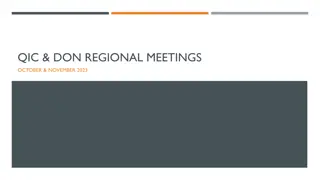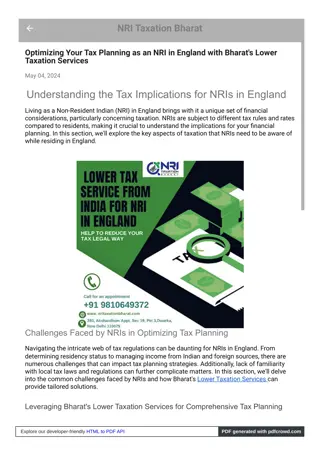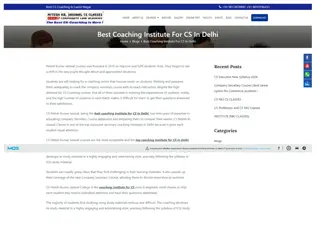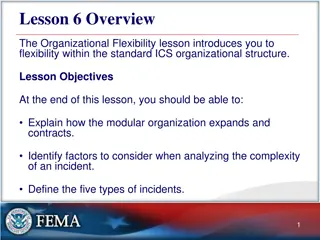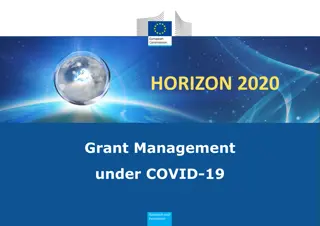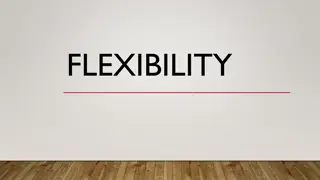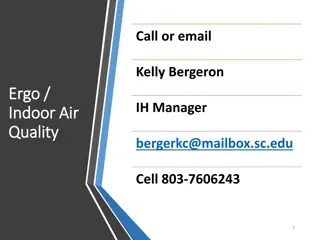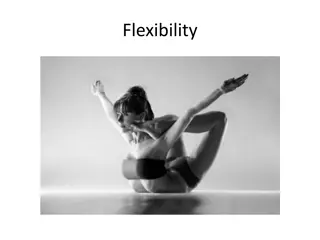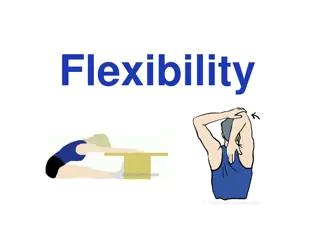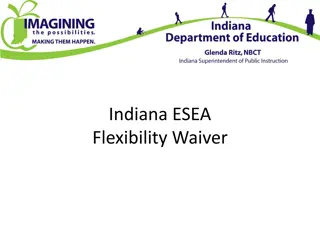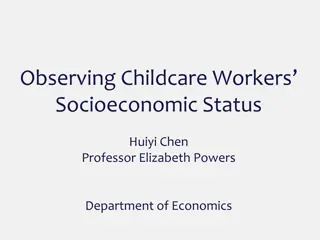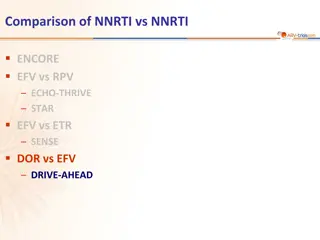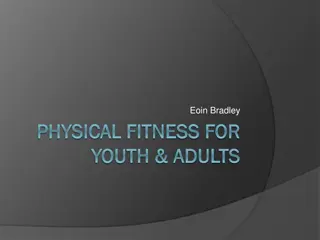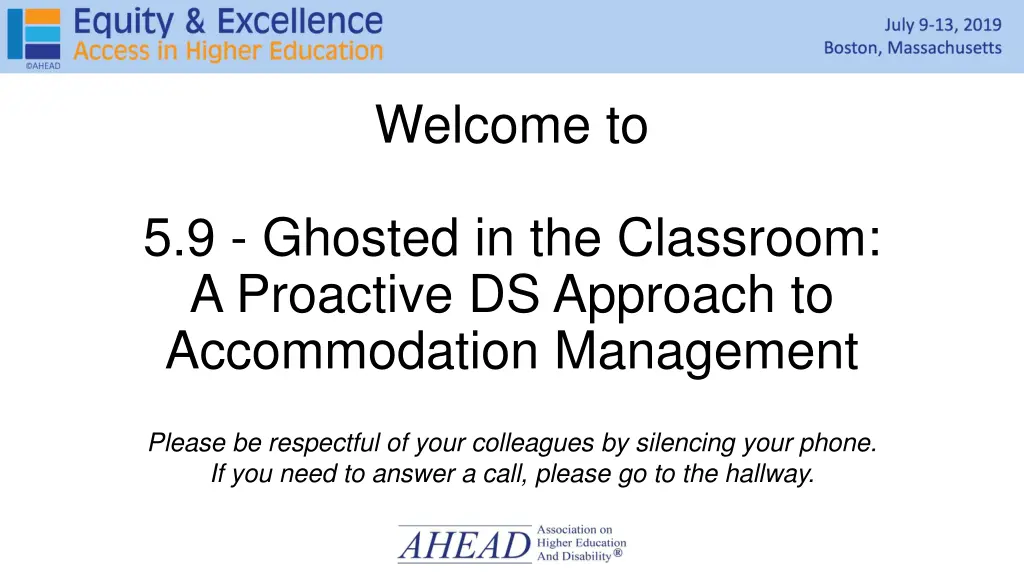
Proactive Approach to Accommodation Management in Classroom Setting
Enhance your understanding of proactive accommodation management in educational settings with insights on flexibility, inclusivity, and accessibility. Join experts in exploring tools like the Eisenhower Decision Matrix and creating a culture of respect and civility. Dive into the interactive process of implementing flexible attendance and deadline accommodations for students with diverse needs. Discover strategies for effective communication with instructors to ensure successful accommodation implementation.
Download Presentation

Please find below an Image/Link to download the presentation.
The content on the website is provided AS IS for your information and personal use only. It may not be sold, licensed, or shared on other websites without obtaining consent from the author. If you encounter any issues during the download, it is possible that the publisher has removed the file from their server.
You are allowed to download the files provided on this website for personal or commercial use, subject to the condition that they are used lawfully. All files are the property of their respective owners.
The content on the website is provided AS IS for your information and personal use only. It may not be sold, licensed, or shared on other websites without obtaining consent from the author.
E N D
Presentation Transcript
Welcome to 5.9 - Ghosted in the Classroom: A Proactive DS Approach to Accommodation Management Please be respectful of your colleagues by silencing your phone. If you need to answer a call, please go to the hallway.
Conference Inclusion Statement We ask you to join us in creating a culture that reflects Access and Inclusion and Civility and Respect this week and in all aspects of our organization.
Presenter Contact Information Cheryl Jobe Access Advisor Disability Center University of Missouri Becca Terry Access Advisor Disability Center University of Missouri jobecm@missouri.edu terryrs@missouri.edu
Our Goals Reframe the way we look at flexibility with attendance and deadlines Are you moving towards a vision? - Melanie Thornton
Student Demographics 2018-2019 Academic Year Total: 1,515 Neurological: 32% Psychological: 28% Health-Related: 14% Learning: 11% Physical: 5% Developmental: 3% Temporary Injuries: 3% Hearing: 2% Vision: 2% Speech/language disorder: >1% FREQUENCY OF FLEX ACCOMMODATION 198 out of 1515 students - Roughly 13% of students have flex accommodation
Step 1 - The Interactive Process Application Interactive dialogue Flexibility Guided Notes
EXERPT from Handout #5 - GUIDED NOTES FOR STUDENTS Implementing Flex Attendance and/or Deadlines Accommodations: It is essential that you talk with your professors individually to ensure that they and you have a full understanding regarding how the accommodations will be implemented. How do you do this? 1. Review class syllabi. Are there attendance and deadline policies for your classes? Are there policies regarding make-up exams / quizzes? Make sure you understand these expectations before you talk with your instructors. 2. Be timely in your communication (as soon as you know you qualify for these accommodations, and as early in the semester as possible). 3. Be clear in your communication and ask questions that will allow for discussion. 4. Understand that flexible attendance/deadlines will not work for all classes. 5. Do not just hand your professor your memo and expect to receive the accommodations. 6. Review the Guide for Implementation (PDF available from our website), and take it with you to discuss the accommodation(s) with your professors. 7. Remember: you are still required to complete all coursework.
EXERPT from Handout #5 - GUIDED NOTES FOR STUDENTS Below are suggested questions to guide you in your discussion with professors. Select the questions as appropriate. Regarding attendance: If you have a structured attendance policy, is there room for flexibility? If so, how? If I need to miss class, what do I do? Should I send you an email or call you? How can I catch up on what I may have missed? If I miss class on a day an assignment is due, can I turn in the work electronically? What if I miss class on a day an exam is scheduled. If you allow make-up exams, is there a timeframe within which make ups must be completed (keeping in mind Disability Center policies regarding timely notification)? Regarding deadlines: If you have a structured deadline policy, is there room for flexibility? If so, how? If I need to miss a deadline, what do I do? Should I send you an email or call you? How much notice should I provide you that I will not be able to make the deadline?
Step 2 Students Next Steps Request Form (Handout #2) Documentation
Step 3 Staff Next Steps Consider the GAF Staff the request Determine if reasonable and appropriate Consider alternative accommodations
Step 4 Results from Staffing Notify Student of Decision Send email immediately Meet with student to talk through implementation or other options Review Guided Notes for Students (again)
GAF (Global Assessment of Functioning) Based off of DSM IV Academic, Vocational, Social/Emotional Evaluate Assess Score (Snapshot of student overall picture)
Step 5 On-Going Support Check-Ins Correspondence between student and professors Discussing additional barriers Challenges with implementation
Future Considerations Advisor works with student to consider: Course content Program Requirements/ Progress of Coursework Changes to condition Barriers to implementation Offer to meet with professors with the student (Active Involvement)
Presenter Contact Information Cheryl Jobe Access Advisor Disability Center University of Missouri Becca Terry Access Advisor Disability Center University of Missouri jobecm@missouri.edu terryrs@missouri.edu
Session Evaluation Please see session moderator for paper evaluation form or complete the evaluation online.

